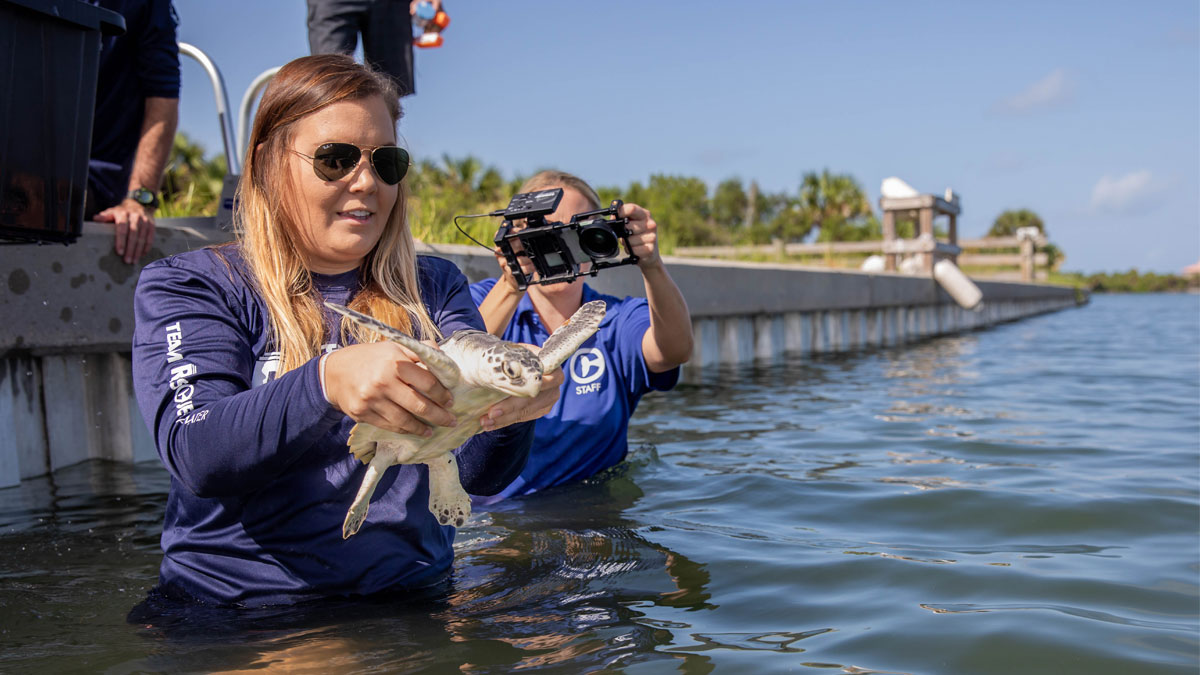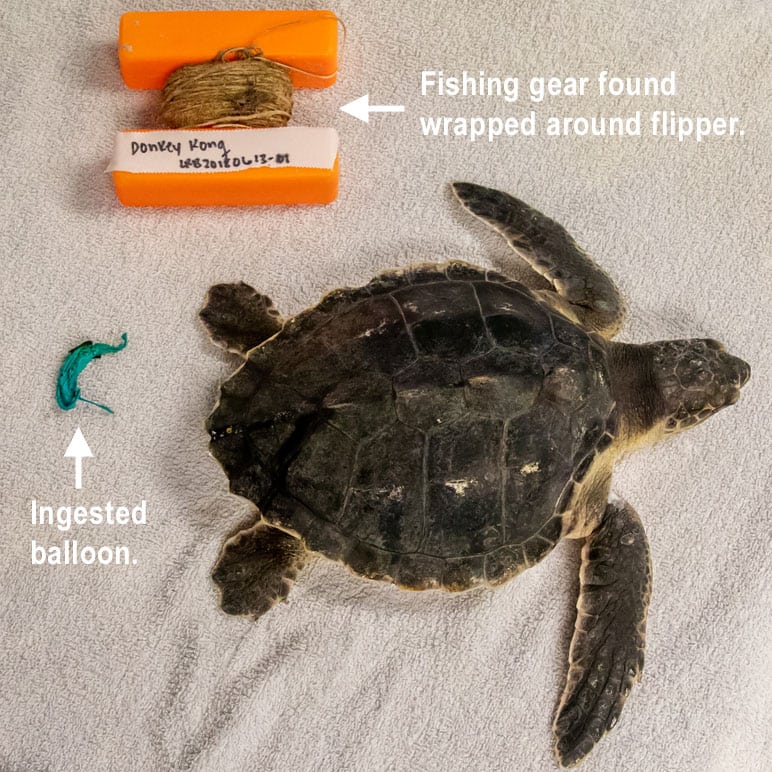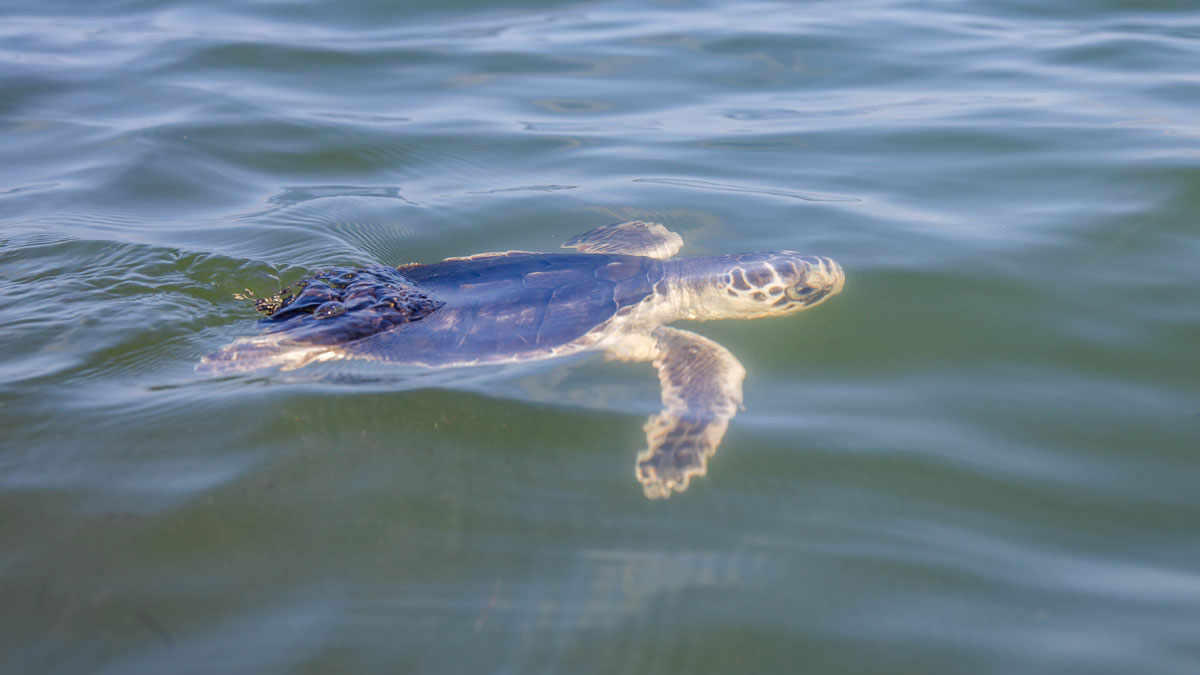Rarest of Sea Turtle Species Return Home
Clearwater Marine Aquarium (CMA) rescued, rehabilitated and released two Kemp’s ridley sea turtles. They are the rarest and most critically endangered species of sea turtles. Donkey Kong and Mario Kart are both juvenile sea turtles and were released on Thurs., Aug. 9 at Honeymoon Island State Park.

One Swallowed a Balloon, Both Found Entangled in Fishing Gear
Both sea turtles, named during CMA’s “game” theme, were affected by human impacts in their environment. Donkey Kong was found by boaters four miles off Sand Key on June 13, 2018. The sea turtle was found with fishing gear line from a marker buoy wrapped around his right front flipper. Upon arrival, Donkey Kong was examined, treated for his entanglement wound and received fluids. Less than two weeks after he was rescued, a piece of a balloon Donkey Kong ingested passed through his system.
“Balloons and plastic are part of the deadly marine debris problem in our oceans,” says David Yates, CEO of CMA. “Many sea turtles mistake balloons, plastic bags and other debris for jellyfish and other foods they normally eat.”

Clearwater Marine Aquarium recently announced, Winter’s Ocean Warriors, a new campaign to help reduce marine debris.
Mario Kart was rescued by CMA on July 29, 2018, after being caught in a fisherman’s hook and line off a pier at the Seminole Boat Ramp in Clearwater, FL. The fishing gear was safely removed by CMA staff and Mario Kart was brought to CMA for rehabilitation. The Florida Fish and Wildlife Conservation Commission cleared both sea turtles for release. CMA staff released Donkey Kong and Mario Kart at Honeymoon Island on Thurs., Aug. 9.

Learn ways you can help protect sea turtles with alternatives to balloons and safer fishing gear tips.
All marine turtle footage taken in Florida was obtained with the approval of the U.S. Fish and Wildlife Service and the Florida Fish and Wildlife Conservation Commission (FWC) under conditions not harmful to marine turtles. Footage was acquired while conducting authorized conservation activities pursuant to FWC MTP-18-172.